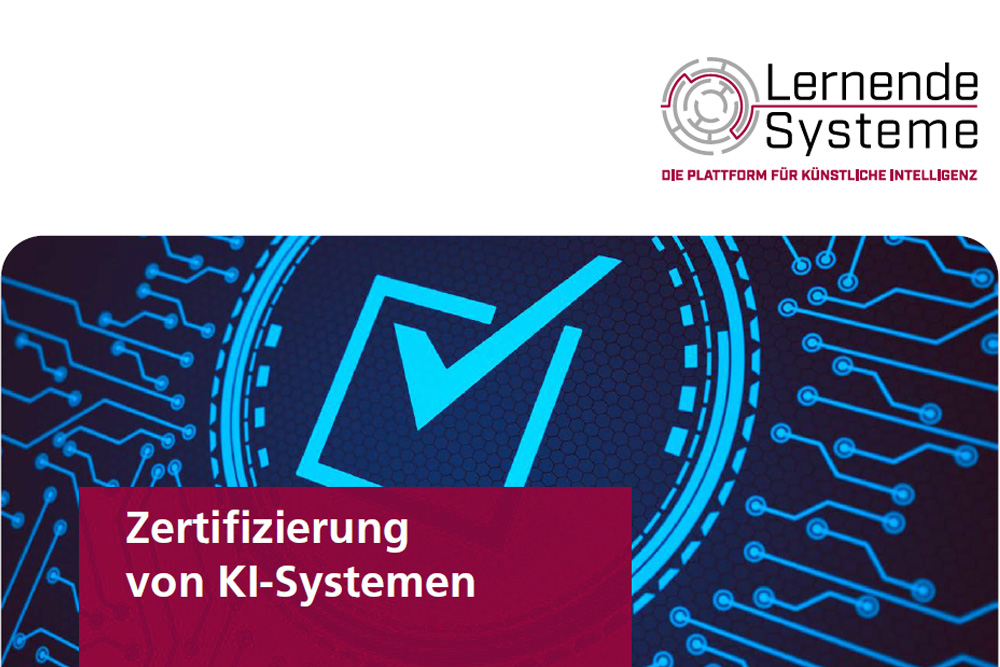Impulse paper on the certification of AI systems
28 April 2020
The Learning Systems platform, Germany’s platform for Artificial Intelligence, publishes an impulse paper that discusses potentials and challenges for AI certification in order to promote the development of trustworthy AI systems “made in Europe”. In the publication, the interdisciplinary team of authors, consisting of experts from the Fraunhofer Institute for Intelligent Analysis and Information Systems IAIS, the Karlsruhe Institute of Technology KIT, the University of Tübingen and the German Academy of Science and Engineering, outlines the benefits of AI certification and the requirements with regard to technical implementation, public welfare and maintaining innovative strength. The “Technological Pioneers and Data Science” working group of the Learning Systems platform, which also includes the two ML2R spokespersons Prof. Dr. Katharina Morik and Prof. Dr. Stefan Wrobel, played a major role in the preparation of the publication.
Artificial intelligence (AI) is a key technology with great potential benefits. As a cross-sectional technology, AI will be used in almost all areas of life and in the future will be able to do many things easier, more precisely and faster than humans. This development offers great opportunities for modern society, but it also leads to new questions and challenges. When AI systems act autonomously, make decisions or plan, it is important that this is done within an ethically acceptable framework. Questions of control, legal certainty, accountability and transparency as well as IT security, data protection and autonomy must be addressed. It is important that any discriminatory action by AI systems is avoided and that people can trust the systems.
In the impulse paper, the interdisciplinary team of authors from members of the Learning Systems Platform highlights technical, legal and ethical aspects as well as questions and challenges that need to be addressed on the way to certification of AI. AI certification is intended to evaluate systems for implementation requirements and to award a seal of approval – with the aim of increasing the acceptance of AI systems, providing an orientation point for AI developers and creating a European standard for market-based competition.
The publication also provides an overview of existing certification projects in Germany and advocates the establishment of a central certification body to position “AI made in Europe” as a trustworthy brand.
More info:


